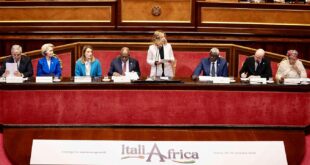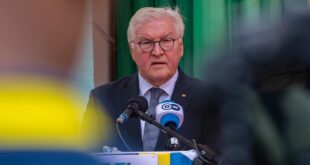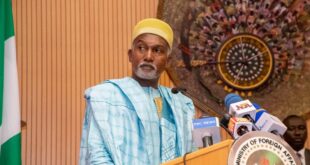Germany’s Turkish diaspora has been assured that it is part of the fabric of the nation despite difficult relations between Berlin and Ankara. A letter by Germany’s foreign minister has been published in a newspaper.
Less than 48 hours after announcing a major shift in policy towards Turkey, German Foreign Minister Sigmar Gabriel on Saturday sought to calm fears among Turkish nationals living in Germany that they are not targets in an ongoing political row.
Gabriel penned an open letter, published in German and Turkish in the tabloid Bild, where he called the friendship between Germans and the estimated 3 million Turks living in the country a “great treasure.”
His message followed a further week of wrangling between the two countries following the jailing by a court in Istanbul of several human rights activists – including German national Peter Steudtner – accused of what Germany says are the trumped-up charges of being linked to a terrorist organization.
Ankara also this week published a list implicating dozens of German companies and individuals that it said have links to the network of US-based cleric Fethullah Gulen, which it blames for last July’s failed coup in Turkey.

‘Good relationship’
Despite a worsening row, Gabriel told Turks in Germany: “We have always been committed to good relations with Turkey because we know that a good relationship between Germany and Turkey is important to you.”
However, he said, the German government could not stand idly by while German nationals were arrested: “We must protect our citizens.”
But he went on to say that “however difficult the political relations between Germany and Turkey, one thing is clear: You, people of Turkish roots in Germany belong here with us, whether you have a German passport or not.”
Gabriel on Friday said he was “reorienting” Germany’s policy towards Turkey following this week’s controversial events, and issued a more severe travel advisory in light of the “heightened danger” faced by German travellers to the country.
Economic measures
Economic aid and export guarantees for Turkey are to be reviewed under the changes, Gabriel said. The German foreign minister also vowed to pressure the EU on its aid commitment to Turkey, which has been in talks to join the bloc for years.
Gabriel accused Turkish President Recep Tayyip Erdogan of “abandoning key European values” by detaining the activists and in his response to the failed putsch, which saw more than 50,000 people jailed pending trial and 150,000 dismissed or suspended from their jobs including soldiers, police officers, teachers, judges and other public servants.
Human rights consultant Peter Steudtner has become the latest German national to be held by Turkish authorities. Journalists Deniz Yucel and Mesale Tolu are also behind bars indefinitely on similar allegations of links to terror groups.

Hidden tactics criticized
The Berlin government is also increasingly concerned at what it says is large-scale covert activity by Ankara’s security services among Germany’s vast Turkish diaspora.
The head of domestic intelligence said on Friday that Turkish influence operations were taking place in Germany, and some were targeting Erdogan’s opponents here.
Bilateral relations previously sank to a post-World War II low after Turkey refused permission for a German parliamentary delegation to visit the country’s armed forces stationed at the Incirlik air base in southeastern Turkey. Berlin then announced it was moving its troops to Jordan, a process which began earlier this month.
Germany has been critical of an April referendum which gave Erdogan permission to extend his presidential powers, amid worries about a weakened democracy in Turkey.
mm/jm (AFP, dpa, Reuters) / © DW
 THE AFRICAN COURIER. Reporting Africa and its Diaspora! The African Courier is an international magazine published in Germany to report on Africa and the Diaspora African experience. The first issue of the bimonthly magazine appeared on the newsstands on 15 February 1998. The African Courier is a communication forum for European-African political, economic and cultural exchanges, and a voice for Africa in Europe.
THE AFRICAN COURIER. Reporting Africa and its Diaspora! The African Courier is an international magazine published in Germany to report on Africa and the Diaspora African experience. The first issue of the bimonthly magazine appeared on the newsstands on 15 February 1998. The African Courier is a communication forum for European-African political, economic and cultural exchanges, and a voice for Africa in Europe.


































